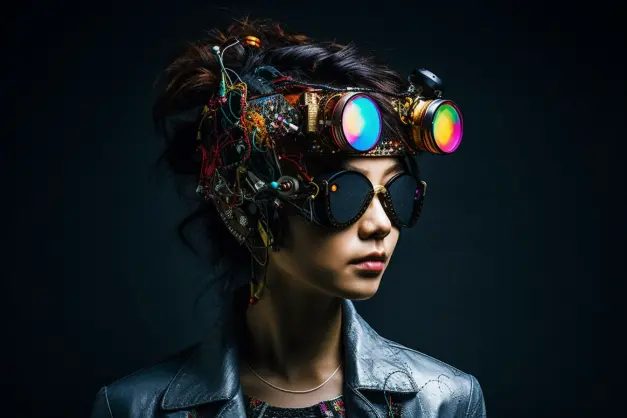Unveiling the Future of Medicine: How AI is Revolutionising Drug Discovery

In the quest for new treatments and life-saving medication, the drug discovery process has undergone remarkable progress in recent decades. The path to discovering and developing new drugs is a complex journey spanning multiple disciplines and often taking a decade or more [1]. This process is not only complex but also financially demanding, with costs that can range from hundreds of millions to billions of dollars [2], and it’s often associated with a high degree of uncertainty that a drug will actually succeed. With the rapid advancements of AI technologies, showcasing exceptional importance across various domains, the era of AI-empowered drug discovery has arrived! Let’s examine the potentially transformative impact of AI on the landscape of drug discovery.
Drug Discovery Process
The process of discovering new drugs is a comprehensive journey that encompasses five key stages, each playing a crucial role in bringing potentially life-changing medications to fruition [3].

Main stages of Drug discovery and development [3]
- Pre-Discovery Stage: This initial phase involves fundamental research aimed at understanding the mechanisms underlying various diseases and the proposal of potential targets, often in the form of proteins, that are identified as critical players in disease progression.
- Drug Discovery Stage: Once potential targets have been detected, researchers embark on a quest to find molecules or other therapeutic strategies that can help cure the investigated disease or alleviate the symptoms.
- Preclinical Development Stage: As promising drug candidates emerge, they undergo rigorous evaluation in the preclinical phase to assess potential toxicity risks, validate efficacy using various in vitro and in vivo models, and initiate the formulation development process.
- Clinical Stage: With promising candidates in hand, the journey advances to the clinical stage, where the focus shifts to evaluating the safety, efficacy, and dosage of the drug in human subjects.
- Review, Approval, and Post-Market Monitoring: Following the successful completion of clinical trials, the drug candidate undergoes thorough review by regulatory authorities.
AI and its Application in Drug Discovery:
AI tools have been widely adopted in nearly every stage of the drug discovery process, offering substantial potential to reshape the speed and economics of the industry.
Target identification - Pre-Discovery Stage
In the pre-discovery stage, AI target identification models and tools are employed to help scientists better understand complex disease biology, process and analyse large datasets necessary for target identification, make data-driven decisions, and select the right drug target from the outset.
Drug Discovery Stage
AI is used in early drug discovery to measure the "drug-likeness" of new chemicals, replicating the intuition of chemists. More recently, deep learning techniques have been developed for generating molecules in silico, allowing significant progress in several areas such as molecular representation, and molecular property profiles [4].
Clinical Trials
Clinical trials often fail, making drug development slow and expensive. AI technologies have begun to be deployed within key steps of clinical trial design from study preparation to execution leading to trial success rate improvement [5, 6].
Review, Approval, and Post-Market Monitoring
AI is also used to assist in the drug candidate's regulatory process. It helps sort regulations, uses semantic search to find the latest guidelines, and understands the context to provide fitting regulatory suggestions based on the submission's background [7].
Advantages of AI in Drug Discovery
AI is revolutionising the drug discovery process with remarkable benefits that touch people’s lives worldwide. Imagine a process that once took years, is now accelerated by AI, reducing development timelines for new medications.
With an extraordinary ability to analyse large datasets, AI algorithms act as virtual lab assistants, meticulously sifting through information to uncover hidden patterns and potential breakthroughs.
This precision not only enhances research outcomes but also translates to time and cost savings that can be redirected toward further innovations.
Another remarkable edge of AI in drug discovery is its capacity to predict the 3D protein structure, aligning with the target site's chemical environment. This advance enables the anticipation of the compound's impact and safety profile before it's even synthesised or produced, improving the success rate of new drug candidates.
Challenges and Ethical Considerations
Despite the potential benefits of AI in drug discovery, there are several challenges and ethical considerations that must be considered:
Challenges
- Data Quality and Quantity: The amount of data that is accessible for developing AI applications might be limited, and present low data quality or inconsistencies, which can affect the accuracy and reliability of results [8].
- Interpretability: AI algorithms are often complex and operate as black boxes, raising concerns about accountability and transparency [9].
Ethical Considerations
- Fairness and equality: The potential bias within AI algorithms, leads to unequal medical access and unjust treatment for specific demographics, challenging the principles of fairness and equality.
- Job Displacement: The integration of AI in the pharmaceutical sector raises alarms about potential job losses due to automation, necessitating support for affected workers.
- Data privacy and security: The extensive data dependency of AI systems poses risks of unauthorised access or misuse of sensitive personal information, carrying serious implications for both individuals and the reputation of involved companies.
The responsible and ethical utilisation of AI in the pharmaceutical industry demands meticulous consideration and deliberate strategies to address these issues. Promising approaches include diverse and representative data training for AI systems, ongoing bias assessment and review, and the implementation of robust data privacy and security protocols. By navigating these concerns, the pharmaceutical sector can harness AI's potential with a commitment to integrity and ethics [10].
Real-world Examples
AI-enabled drug discovery is rapidly transforming the pharmaceutical industry, with the potential to accelerate the discovery of new drugs and improve patient outcomes. Here are some real-world examples of how AI is being used to revolutionise drug discovery:
- AlphaFold developed by DeepMind can predict the 3D structure of proteins from their amino acid sequences. This information is critical for understanding how proteins function and how they can be targeted by drugs.
- BenevolentAI leverages AI for the identification of new drug candidates, including one that is currently in clinical trials for the treatment of Alzheimer's disease [11].
- Exscientia uses AI to discover several new drug candidates, including the first AI-designed drug to enter clinical trials [12].
- Insilico Medicine employs AI to accelerate three areas of drug discovery and development: target identification, molecule generation, and clinical trial outcome prediction. Currently, they have a new drug candidate that is in mid-stage clinical trials for cancer treatment [13].
In addition to these examples, many other companies and organisations are using AI to advance drug discovery. For example, the National Institutes of Health (NIH) has launched the AI for Drug Discovery Initiative, which is funding research to develop new AI-based tools and technologies for drug discovery. The pharmaceutical giant Pfizer is also investing heavily in AI and has announced plans to create a new AI-driven drug discovery unit.
The use of AI in drug discovery is still in its early stages, but the potential benefits are enormous. AI has the potential to accelerate the drug discovery process, reduce the cost of drug development, and improve the success rate of new drug candidates.
Future Outlook
As AI technology continues to develop, we can expect to see even more dramatic advances in this field. Potential future developments and trends in AI-driven drug discovery can include:
- AI-powered drug design to design drugs that are more effective, less toxic, and easier to produce.
- AI-powered clinical trials to identify patients who are most likely to benefit from a new drug, or to predict the likelihood of a drug being successful.
- AI-powered personalised medicine: to develop personalised medicines that are tailored to the individual patient's genetic makeup and disease profile.
- AI-powered drug repurposing to identify new uses for existing drugs leads to the development of new treatments for diseases that currently have no cure.
AI has the potential to revolutionise the pharmaceutical industry by making new drugs more affordable, accessible, and effective.
Final Thoughts
In this journey through the future of medicine, we've uncovered the transformative potential of AI in revolutionising drug discovery. The conventional drug development process, marked by its complexity, high costs, and lengthy timelines, is now facing a paradigm shift thanks to the rapid advancements in AI technologies.
Key Takeaways:
- AI is revolutionising the drug discovery process, with the potential to accelerate the discovery of new drugs and improve patient outcomes.
- AI can be used to automate many of the tasks involved in drug discovery, such as target identification, molecule generation, and clinical trial design.
- AI can help to improve the accuracy and efficiency of drug discovery, leading to the development of new treatments for diseases that are currently untreatable.
- There are some challenges and ethical considerations that must be addressed before AI can be fully utilised in drug discovery, such as the availability of data, the interpretability of AI algorithms, and the potential for bias.
Let us solve your impossible problem
Speak to one of our industry specialists about how Artificial Intelligence can help solve your impossible problem

















